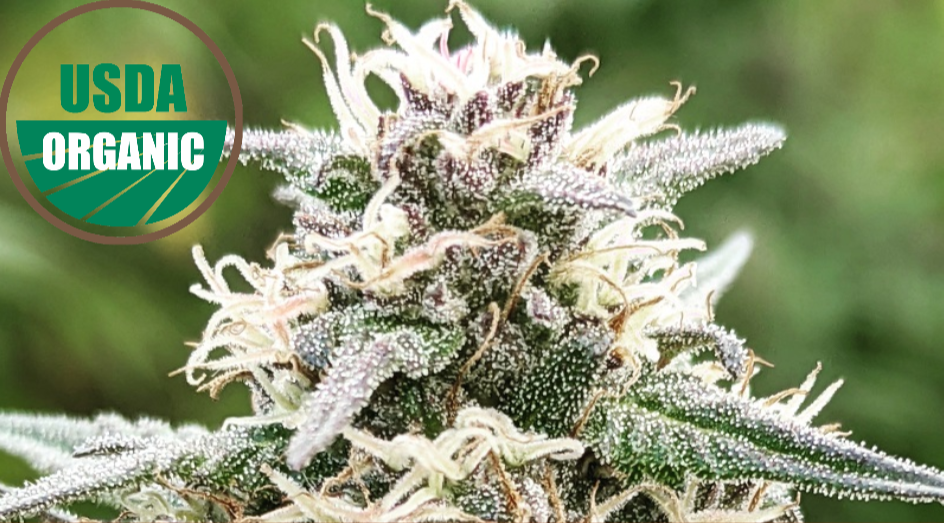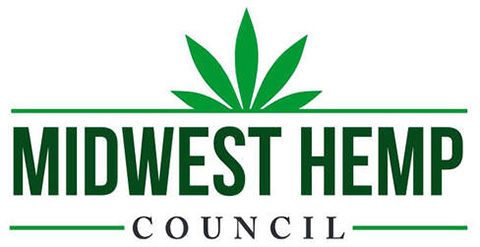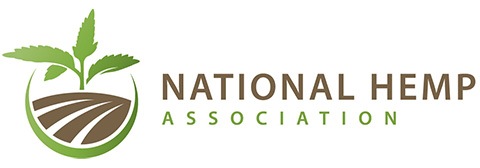
U.S. consumer demand for certified organic products has never been higher. There are also signs that demand for organic hemp is on the rise. On the production side, organic certification may be becoming more appealing to growers, due in part to current supply chain disruptions that have caused prices for conventional agricultural chemicals and other inputs to spike.
How Large is the Organic Hemp Sector?
According to a 2021 Organic Industry Survey released this past May by the Organic Trade Association (OTA), U.S. organic product sales soared to new heights in 2020, jumping a record 12.4% to $61.9 billion. OTA noted those numbers “marked the first time that total sales of organic food and non-food products have surpassed the $60 billion mark, and reflected a growth rate more than twice the 2019 pace of 5%.”
Do those growth numbers for overall organic sales extend to the hemp market? “We don’t track hemp well in this country,” Brian Mitchell, a hemp researcher and PhD candidate at Colorado State University, who has been working with hemp since early 2018, told Hemp Benchmarks. “I’m always trying to get numbers. I cannot tell you honestly if the organic hemp [market] is booming.”
There are indications that the organic hemp market is expanding. In our monthly Hemp Benchmarks Spot Price Index reports, we have noted that U.S. Department of Agriculture certified organic hemp products typically command higher wholesale prices than conventional ones, with numerous operators telling us that demand for organic hemp items – from smokable flower to CBD extracts to hemp grain-based food products – is high. We have also observed increasing proportions of reported transactions for organic products over time, suggesting that farmers and product manufacturers see gaining organic certification as a worthwhile endeavor.
Mitchell noted there are a variety of reasons why demand for certified organic hemp products should be growing. First of all, he said, “people are ingesting this stuff. Why would they not want what, at least on the surface, would be a safer product, without all those synthetic substances used for their production?”
Could Supply Chain Disruptions Push Hemp Producers to Organic Farming?
Ongoing supply chain disruptions stemming from the COVID-19 pandemic are causing havoc for nearly all parts of the hemp industry, from packaging to agricultural chemicals. Input costs are soaring for conventional agriculture in particular. Mitchell thinks these disruptions could work in favor of organic hemp growers.
“The anhydrous ammonia fertilizers are at record highs right now,” Mitchell noted. “I want to grow hemp, but not spend money for some complex system. I don’t think that’s necessary with most crops, but especially not with hemp. I wanted to show in my research that you can grow hemp with common products. Building soil health is the first thing in organic systems. Then, finding plant and animal-based fertilizers. As the price of fertilizers go up, there are lots of ways to grow a respectable crop. And then if you have that organic certification you’re going to make more money and reduce your costs.”
Mitchell added that he believes the plant lends itself to organic growing methods, which apply well with both CBD flower and hemp grain. “Hemp production certainly has unique characteristics, in terms of environmental stresses and other factors,” he said. “It’s resilient, in that it’s drought-resistant over time, and I’ve also seen a crop get taken down by hail and then grow back up from stubs. I’ve even mowed hemp down on purpose, and it still continues to grow and thrive.”
Tim Chiles is managing partner at The Green Farmers Market in Ohio. His operation has been growing organic hemp flower since it became a legal crop in the state in 2020, on a quarter-acre parcel with a thousand-plant minimum, as required by state law. He also works at developing CBD hemp genetics. Chiles said the supply chain disruptions, especially with input costs going up for conventional hemp cultivation, are “not helping me yet, but it’s going to.”
“For anyone that’s buying ammonia fertilizer,” he continued, “synthetic input costs are going through the roof. The [non-organic] competitors are getting their asses handed to them, when it comes to growing the crop with synthetics. And they’re going to have to either change their practices and join the organic crowd, or suffer lower profitability. And the education is persisting about how the quality differences are significant, and potentially detrimental if you’re consuming the synthetic-grown products. So I believe organic has a bright future.”
What Challenges Do Organic Hemp Producers Face?
There are several hurdles to clear in becoming a certified organic hemp producer and successfully marketing organic products to consumers. As Brian Mitchell pointed out, organic growing and certification requires a lengthy transition from conventional farming, as well as adjustment to a “completely different” style of cultivation. “Application of fertilizers and how they release are going to be different,” he said. “Also, under the National Organic Program you’re limited to substances for organic systems, limited by what chemicals are allowed on hemp. There’s very little research being done, even on a state level, for chemical use on hemp.”
Tim Chiles said people considering organic hemp farming need to do a lot of testing on inputs to ensure they are not contaminating their crop, accidentally or otherwise. “More testing is number one, and more thought about what goes into what you want to put on your crop, because somebody [selling “organic” products] could be lying to you. Heavy metal contamination in fertilizer is common. The decisions you make have to be made with a lot of thought or … you have the potential to be side-swiped. Other than just trusting some label, you have to make sure that they’re testing their product. There are a lot of ways to really mess it up.”
Weed management is another challenge, Mitchell pointed out. “Hemp is really resilient but it takes a six to eight week period before it puts on a lot of growth,” he continued. “So weed management is needed early in the season.”
Chiles is a firm believer in organic hemp, but is frustrated by what he described as a “basically non-existent” market. In his view, lack of enforcement of standards makes it difficult for organic producers to differentiate themselves. Despite Ohio having some of the most stringent hemp regulations in the country, Chiles told Hemp Benchmarks, the hemp market is “littered with product that doesn’t meet standards that any licensed cultivator is held accountable for.”
And if organic hemp growers can find a market, he added, “the $5 per pound that you might get [for CBD biomass] if you found a legitimate buyer, compares to the $50 [a pound] that we started at 24 months ago. Chiles continued, “That’s because the FDA says we can’t operate in food and make food products,” referring to the U.S. Food and Drug Administration’s stance that CBD is a drug ingredient and therefore cannot be added to food or marketed as a dietary supplement.
Despite these challenges, Chiles is determined to stay with organic hemp for the long run. “I got a lot of work done on the genetics,” he said. “I’ve got the genetics preserved for when the market comes around. … I’ve done a lot to get further down the road, selecting phenotypes. I’ve tested my product multiple times this year. I have a lot of understanding about the minor cannabinoids that are in the genetics; I’ve got rights to use them. So when the market is ready, I’ll be ready.”


